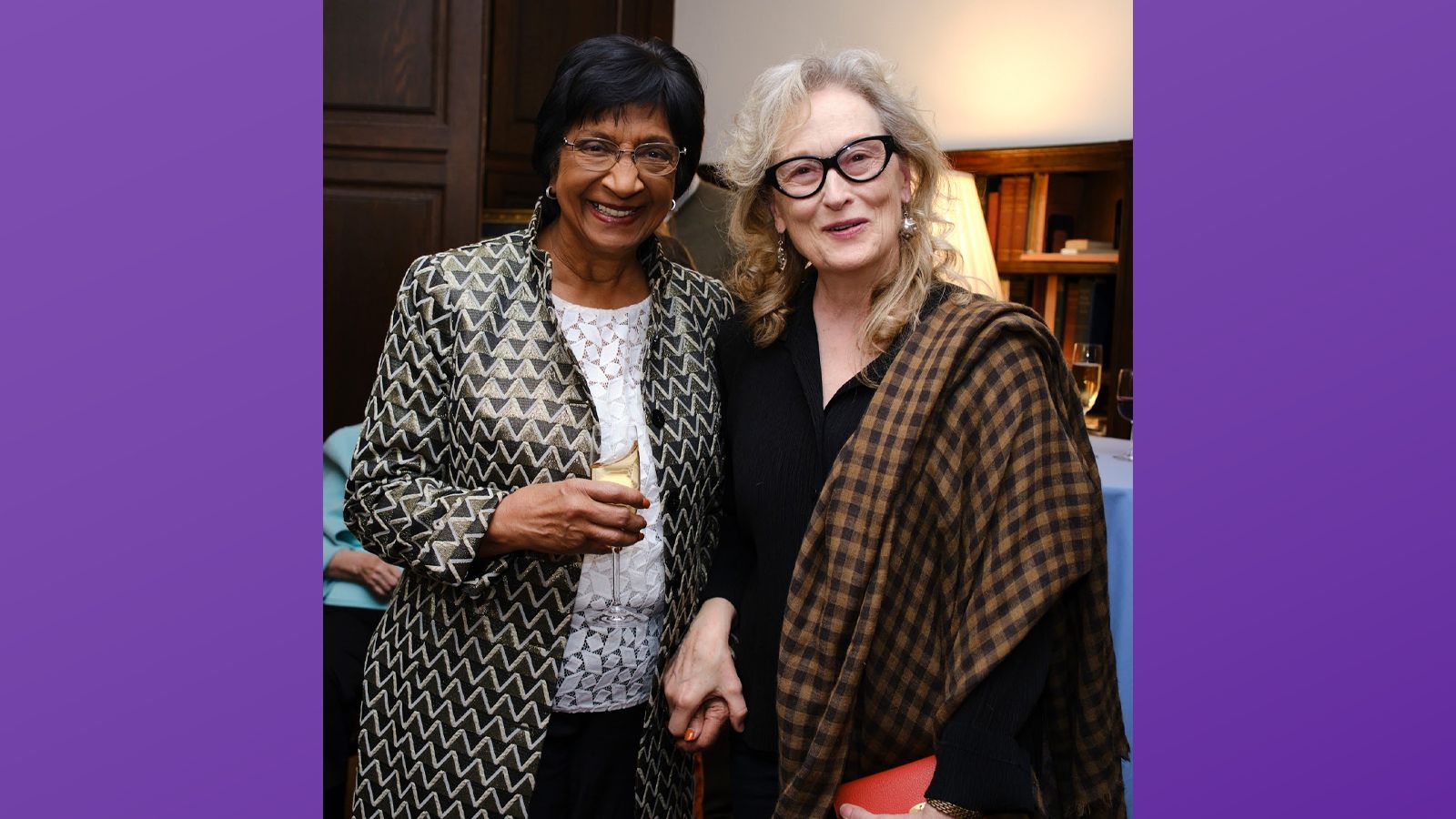Hunter College marked the 75th anniversary of the Universal Declaration of Human Rights with a powerful performance by actor and advocate Meryl Streep as Eleanor Roosevelt, who led the drafting of the declaration.
The performance, staged as a dialogue with Navi Pillay, a former UN High Commissioner of Human Rights, took place at a star-studded reception at Hunter’s Roosevelt House Public Policy Institute December 6. Pillay is now Leader in Residence at Roosevelt House’s Human Rights Program.
“This event would be inspiring in any setting, but the ambience here is special — because we know that here Eleanor lived as she blossomed from wife and mother to social activist to political and policy advocate to admired leader in her own right,” said Jonathan F. Fanton Director of Roosevelt House Harold Holzer.
Eleanor Roosevelt deeded Roosevelt House, the family home, to Hunter in 1943. She never really left, however: For decades, the college used the double-wide townhouse on East 65th Street as a clubhouse for students, and Eleanor, who died in 1962, would often stop by in her later years. Hunter College renovated the townhouse and opened it as the public policy institute in 2010.
“If there are two things Eleanor is known for in the Hunter community, it’s her commitment to human rights and her devotion to this college,” Hunter President Ann Kirschner said at the gathering. “She was a presence on campus for years — a friend and mentor to many students.”
Streep, wearing a dowdy and a 1940s-style flowered dress, used words from Roosevelt’s widely syndicated newspaper column, “My Day.” She evoked a knowing and droll Eleanor as she discussed the declaration and the events that led up to it.
“It was extremely difficult to find any way in which we could shorten the discussion on any single point,” Streep, affecting the Brahim tones of the “First Lady of the World,” recalled about the two-year drafting. “No one can ever tell me that women like to talk longer than the men!”
Pillay, a judge from South Africa, movingly recounted her struggles against Apartheid.
“As a child growing up, and as a woman — a young lawyer fighting the daily brutality of the South African security forces — I was aware of the Universal Declaration of Human Rights, but these rights were very far from my life, way out of reach,” Pillay said.
Hunter has many connections to the declaration: The college’s Gillet Hall, on its one-time Bronx campus, hosted the drafting committee’s work.
“The facilities for our meeting were not perfect, but we were comparatively comfortable,” Roosevelt wrote in her column of the accommodations, adding, “We met in a classroom, perhaps 10 or 12 persons working on a particular phase of the program, around a U-shaped table — the official interpreter in the center.”
The United Nations adopted the document on December 10, 1948.
The program featured a short film about Eleanor and a keynote speech by Jessica Neuwirth, a distinguished lecturer and the Rita E. Hauser director of the Human Rights Program. Hauser ’54, the chair of the Roosevelt House Advisory Board, a former U.S. Ambassador to the U.N. Commission on Human Rights, and an Eleanor Roosevelt protegee, attended the gathering.
Other luminaries at the gathering were legendary songstress Judy Collins; Hunter College Foundation Chair Cathy Weinroth; former Congresswoman Carolyn Maloney, who is now Roosevelt House’s Eleanor Roosevelt Leader-in-Residence; Switzerland’s ambassador to the U.N., Pascale Baeriswyl; the U.N. Secretary General’s special representative on sexual violence in conflict, Pramilla Patten; a granddaughter of Franklin and Eleanor Roosevelt, Kate Whitney, and her daughter, Roosevelt great-granddaughter, Lulie Haddad.


